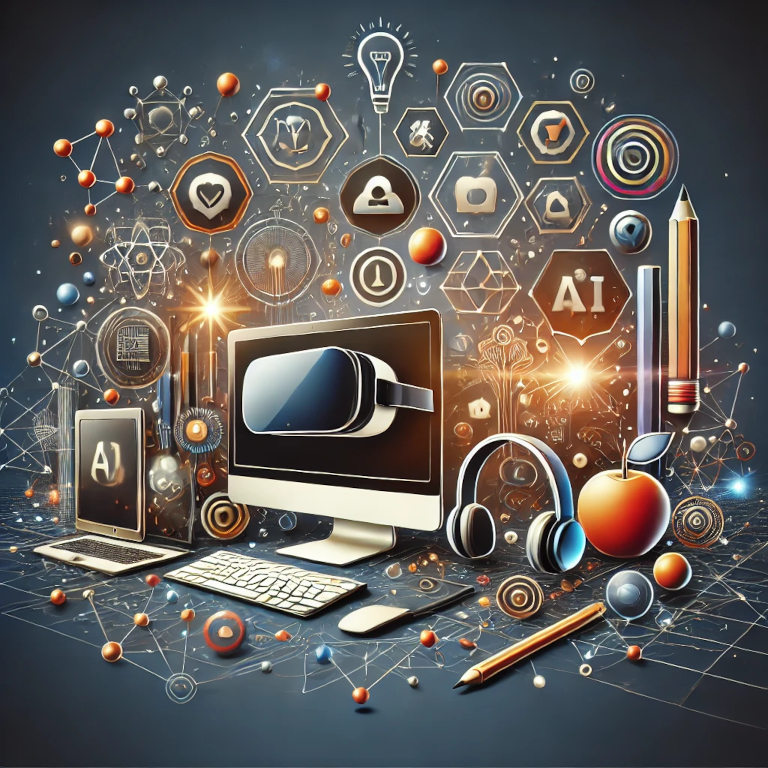Educational technology has revolutionized the way we learn and teach, providing innovative tools and resources that enhance the educational experience. From interactive apps to virtual reality, educational technology is transforming traditional classrooms and making learning more accessible and engaging. As an expert in Technology and Gadgets, I will explore the various facets of educational technology, its benefits, and how it is reshaping the future of education.
The Evolution of Educational Technology
Educational technology, or EdTech, encompasses a wide range of tools and applications designed to improve teaching and learning processes. Its evolution has been driven by advancements in digital technology and the increasing demand for personalized and flexible learning experiences.
Early Beginnings
The use of technology in education dates back to the introduction of the first computers in classrooms during the 1960s and 1970s. These early efforts focused on computer-assisted instruction and basic programming skills.
The Internet Era
The advent of the internet in the 1990s brought significant changes to educational technology. Online resources, educational websites, and e-learning platforms began to emerge, providing students and teachers with access to a vast array of information and learning materials.
Modern EdTech
Today, educational technology has expanded to include sophisticated tools such as interactive whiteboards, learning management systems (LMS), educational apps, virtual reality (VR), and artificial intelligence (AI). These technologies are designed to enhance learning experiences, promote collaboration, and support personalized education.
Key Components of Educational Technology
Understanding the key components of educational technology helps in appreciating its impact and potential. Here are some of the most influential tools and applications in modern education:
Learning Management Systems (LMS)
LMS platforms like Moodle, Canvas, and Blackboard are essential tools for managing and delivering educational content. They enable educators to create, distribute, and track learning materials, assessments, and student progress. LMS platforms support blended learning, allowing for a mix of online and face-to-face instruction.
Educational Apps and Software
Educational apps and software provide interactive and engaging learning experiences. Apps like Duolingo for language learning, Khan Academy for comprehensive subject tutorials, and Quizlet for study aids are widely used by students of all ages. These tools offer personalized learning paths and instant feedback, enhancing the learning process.
Virtual Reality (VR) and Augmented Reality (AR)
VR and AR technologies are transforming education by providing immersive learning experiences. VR can transport students to historical events, distant planets, or inside the human body, making abstract concepts tangible and engaging. AR overlays digital information onto the real world, enhancing textbooks and enabling interactive learning experiences.
Artificial Intelligence (AI)
AI-powered tools are revolutionizing personalized learning. AI can analyze student data to provide tailored recommendations, identify learning gaps, and offer customized learning paths. Tools like AI-driven tutors and chatbots support students in real-time, providing assistance and feedback.
Interactive Whiteboards
Interactive whiteboards have replaced traditional blackboards in many classrooms. These digital boards allow teachers to display multimedia content, annotate lessons, and interact with students in real-time. They enhance classroom engagement and support collaborative learning.
Benefits of Educational Technology
The integration of educational technology offers numerous benefits, improving both teaching and learning experiences.
Enhanced Engagement
Educational technology makes learning more engaging and interactive. Multimedia content, gamified learning, and interactive simulations capture students’ attention and make learning enjoyable.
Personalized Learning
EdTech tools support personalized learning by adapting to individual student needs. AI-driven platforms can customize lessons based on student performance, ensuring that each learner progresses at their own pace.
Improved Collaboration
Technology fosters collaboration among students and teachers. Online discussion forums, collaborative projects, and virtual classrooms enable students to work together, share ideas, and learn from one another, regardless of geographical barriers.
Accessibility and Inclusivity
Educational technology makes learning accessible to a broader audience. Online courses, e-books, and digital resources can be accessed from anywhere, making education more inclusive. Assistive technologies also support students with disabilities, providing customized learning experiences.
Efficient Assessment
EdTech tools streamline the assessment process. Automated grading, online quizzes, and digital portfolios provide instant feedback, helping teachers track student progress and identify areas for improvement.
Future Trends in Educational Technology
The future of educational technology promises even more innovative and impactful developments. Here are some trends to watch:
Adaptive Learning
Adaptive learning technologies use data analytics to create personalized learning experiences. These systems continuously adjust content and assessments based on student performance, ensuring optimal learning outcomes.
Gamification
Gamification incorporates game elements into educational activities, making learning fun and motivating. Points, badges, leaderboards, and challenges can enhance student engagement and encourage a growth mindset.
Blockchain Technology
Blockchain technology has the potential to revolutionize credentialing and academic records. Secure, verifiable digital credentials can simplify the verification process for degrees, certifications, and achievements.
Hybrid Learning Models
Hybrid learning models combine traditional classroom instruction with online learning. This flexible approach allows for a more personalized and efficient educational experience, catering to diverse learning preferences.
Data-Driven Decision Making
The use of big data and analytics in education will continue to grow. Educators can leverage data to make informed decisions, improve teaching strategies, and enhance student outcomes.
Summary
Educational technology is transforming the landscape of education, offering innovative tools and resources that enhance learning experiences and improve educational outcomes. From learning management systems and educational apps to virtual reality and artificial intelligence, EdTech provides personalized, engaging, and accessible learning opportunities. As we look to the future, trends like adaptive learning, gamification, and blockchain technology promise to further revolutionize education, making it more efficient, inclusive, and effective. Embracing these advancements will be crucial in preparing students for the challenges of the modern world.






